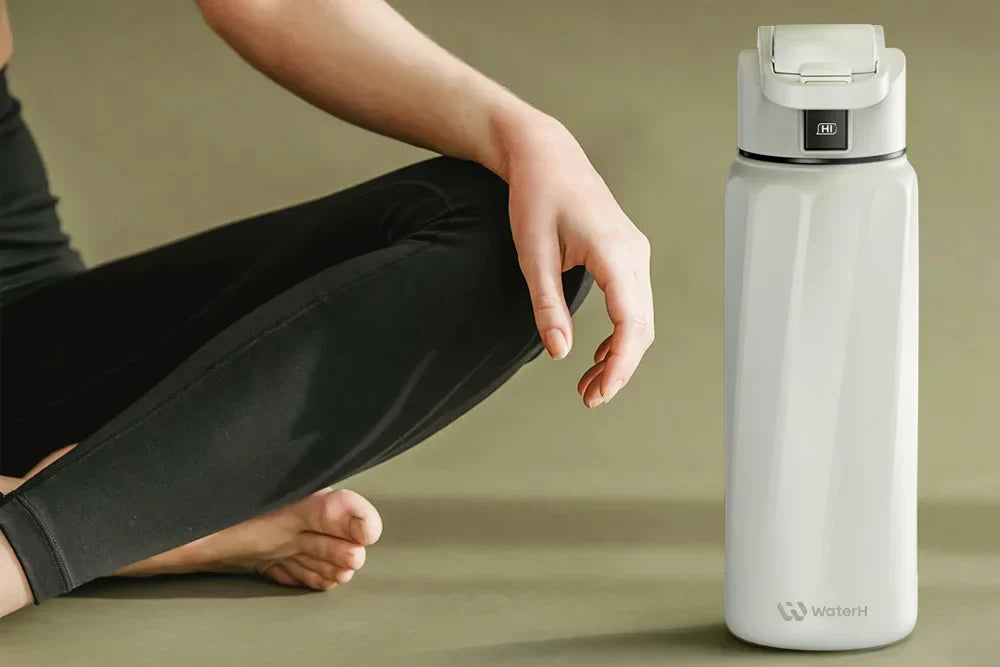
Why Hydration is the Secret to Better Meditation?
When we think of meditation, we often imagine a quiet space, deep breathing, and a calm mind. But hydration is one powerful, overlooked element that can transform your meditation experience. Whether you're a seasoned meditator or just starting, staying hydrated could be the secret ingredient you've been missing. Let's explore how water can enhance mindfulness and help you tap into a deeper sense of clarity and peace.
The science behind hydration and brain function

Your brain is about 75% water and relies on that hydration to function optimally. Even mild dehydration—just a 1–2% drop in body water—can lead to cognitive fog, trouble concentrating, and emotional instability. That’s hardly the mindset you want during meditation.
Hydration impacts neurotransmitter function, mood regulation, and mental clarity—all essential to a fruitful meditation session. Studies have shown that well-hydrated individuals perform better on cognitive tasks and experience less anxiety and fatigue. Water may be just as important as breath control if your goal is to clear your mind and find inner stillness.
The physical connection: hydration and bodily comfort during meditation
Physical discomfort can be a major distraction while meditating. Dehydration often leads to muscle cramps, dry mouth, headaches, and a general sense of restlessness, all of which pull attention away from the present moment.
By staying well-hydrated, you help your body relax, become fluid, and feel more at ease in seated or cross-legged positions. This allows you to focus your energy inward rather than being pulled out of your practice by thirst or discomfort. If your legs keep falling asleep or your joints ache after only five minutes, hydration might help cushion those aches and reduce inflammation.
When and how can you hydrate for better meditation?
Timing is key. While you don’t want to chug a liter of water right before sitting (hello, bathroom breaks), drinking water about 30 to 60 minutes before your practice allows your body to absorb what it needs without feeling too full or bloated.
Here are a few practical hydration tips to enhance your meditation:
- Start your day with water. Before your morning meditation, drink a glass of room-temperature water by using a drink bottle reminder to rehydrate after sleep.
- Avoid diuretics before meditating. Skip the coffee or caffeinated tea right before you meditate, as they can contribute to dehydration.
- Keep water nearby. After your session, sip slowly to replenish fluids lost through breath or sweat (especially in warmer rooms or during movement-based meditations like yoga nidra).
Integrating hydration into your mindfulness routine
Making hydration part of your mindfulness practice can deepen your awareness and set a calm tone for your meditation. Try the following:
- Practice “mindful drinking.” As you sip water, slow down and notice the temperature, taste, and sensation of water flowing into your body. Let this moment be a mini-meditation on its own.
- Set hydration intentions. Before your session, acknowledge water's role in clearing your mind and centering your body.
- Pair hydration with breathwork. Inhale deeply, sip a glass of water and exhale slowly. This rhythm helps connect the physical act of drinking with the meditative breath.
Over time, hydration can become an integral part of your daily ritual—just like lighting incense or rolling out your mat.
Common myths and misconceptions of meditation

Myth 1: Meditation is purely mental.
While meditation is often viewed as a cerebral or spiritual activity, it’s deeply connected to the physical body. Your hydration level influences posture, breath, and focus.
Myth 2: You shouldn’t drink water before meditating.
There’s no rule against drinking water. Gentle hydration before meditating can enhance the experience—as long as it’s done mindfully and not excessively.
Myth 3: Discomfort is part of the process.
While some physical sensations may arise, persistent discomfort from dehydration isn’t necessary for growth. You deserve to feel nourished and supported in your practice.
Conclusion
Meditation is about finding presence, clarity, and inner peace—hydration supports all these goals. From sharper focus to greater physical comfort, drinking enough water might be the missing link in elevating your meditation practice.
Next time you meditate, ask yourself: Have I had enough water today? Your mind—and your body—will thank you. Follow WaterH to find more tips for staying well-hydrated.















